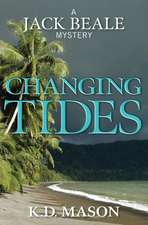The Kill Artist
Autor Daniel Silvaen Limba Engleză Paperback – 19 iun 2002
| Toate formatele și edițiile | Preț | Express |
|---|---|---|
| Paperback (2) | 53.27 lei 3-5 săpt. | +26.66 lei 7-13 zile |
| Orion Publishing Group – 19 iun 2002 | 53.27 lei 3-5 săpt. | +26.66 lei 7-13 zile |
| Signet Book – 31 mar 2004 | 64.09 lei 3-5 săpt. | +11.19 lei 7-13 zile |
Preț: 53.27 lei
Preț vechi: 69.88 lei
-24% Nou
Puncte Express: 80
Preț estimativ în valută:
10.19€ • 10.64$ • 8.44£
10.19€ • 10.64$ • 8.44£
Carte disponibilă
Livrare economică 14-28 martie
Livrare express 28 februarie-06 martie pentru 36.65 lei
Preluare comenzi: 021 569.72.76
Specificații
ISBN-13: 9780752847856
ISBN-10: 0752847856
Pagini: 432
Dimensiuni: 114 x 175 x 28 mm
Greutate: 0.24 kg
Editura: Orion Publishing Group
Locul publicării:London, United Kingdom
ISBN-10: 0752847856
Pagini: 432
Dimensiuni: 114 x 175 x 28 mm
Greutate: 0.24 kg
Editura: Orion Publishing Group
Locul publicării:London, United Kingdom
Notă biografică
Daniel Silva is an ex-CNN TV executive, whose first book THE UNLIKELY SPY was an instant bestseller. He left CNN in 1997 after the book's successful publication and began writing full time. Since then all of Silva's books have been New York Times and international bestsellers. His books have been translated in to more than 30 languages and are published around the world.
Recenzii
[A] heart-stopping complex yarn of international terrorism and intrigue...A thrilling roller-coaster ride, keeping readers guessing until the mind-bending conclusion." —Publishers Weekly
Extras
By coincidence Timothy Peel arrived in the village the same week in July as the stranger. He and his mother moved into a ramshackle cottage at the head of the tidal creek with her latest lover, a struggling playwright named Derek, who drank too much wine and detested children. The stranger arrived two days later, settling into the old foreman’s cottage just up the creek from the oyster farm.
Peel had little to do that summer—when Derek and his mother weren’t making clamorous love, they were taking inspirational forced marches along the cliffs—so he determined to find out exactly who the stranger was and what he was doing in Cornwall. Peel decided the best way to begin was to watch. Because he was eleven, and the only child of divorced parents, Peel was well schooled in the art of human observation and investigation. Like any good surveillance artist, he required a fixed post. He settled on his bedroom window, which had an unobstructed view over the creek. In the storage shed he found a pair of ancient Zeiss binoculars, and at the village store he purchased a small notebook and ballpoint pen for recording his watch report.
The first thing Peel noticed was that the stranger liked old objects. His car was a vintage MG roadster. Peel would watch from his window as the man hunched over the motor for hours at a time, his back poking from beneath the bonnet. A man of great concentration, Peel concluded. A man of great mental endurance.
After a month the stranger vanished. A few days passed, then a week, then a fortnight. Peel feared the stranger had spotted him and taken flight. Bored senseless without the routine of watching, Peel got into trouble. He was caught hurling a rock though the window of a tea shop in the village. Derek sentenced him to a week of solitary confinement in his bedroom.
But that evening Peel managed to slip out with his binoculars. He walked along the quay, past the stranger’s darkened cottage and the oyster farm, and stood at the point where the creek fed into the Helford River, watching the sailboats coming in with the tide. He spotted a ketch heading in under power. He raised the binoculars to his eyes and studied the figure standing at the wheel.
The stranger had come back to Port Navas.
The ketch was old and badly in need of restoration, and the stranger cared for it with the same devotion he had shown his fickle MG. He toiled for several hours each day: sanding, varnishing, painting, polishing brass, changing lines and canvas. When the weather was warm he would strip to the waist. Peel couldn’t help but compare the stranger’s body with Derek’s. Derek was soft and flabby; the stranger was compact and very hard, the kind of man you would quickly regret picking a fight with. By the end of August his skin had turned nearly as dark as the varnish he was so meticulously applying to the deck of the ketch.
He would disappear aboard the boat for days at a time. Peel had no way to follow him. He could only imagine where the stranger was going. Down the Helford to the sea? Around the Lizard to St. Michael’s Mount or Penzance? Maybe around the cape to St. Ives.
Then Peel hit upon another possibility. Cornwall was famous for its pirates; indeed, the region still had its fair share of smugglers. Perhaps the stranger was running the ketch out to sea to meet cargo vessels and ferry contraband to shore.
The next time the stranger returned from one of his voyages, Peel stood a strict watch in his window, hoping to catch him in the act of removing contraband from the boat. But as he leaped from the prow of the ketch onto the quay, he had nothing in his hands but a canvas rucksack and plastic rubbish bag.
The stranger sailed for pleasure, not profit.
Peel took out his notebook and drew a line through the word smuggler.
The large parcel arrived the first week of September, a flat wooden crate, nearly as big as a barn door. It came in a van from London, accompanied by an agitated man in pinstripes. The stranger’s days immediately assumed a reverse rhythm. At night the top floor of the cottage burned with light—not normal light, Peel observed, but a very clear white light. In the mornings, when Peel left home for school, he would see the stranger heading down the creek in the ketch, or working on his MG, or setting off in a pair of battered hiking boots to pound the footpaths of the Helford Passage. Peel supposed he slept afternoons, though he seemed like a man who could go a long time without rest.
Peel wondered what the stranger was doing all night. Late one evening he decided to have a closer look. He pulled on a sweater and coat and slipped out of the cottage without telling his mother. He stood on the quay. looking up at the stranger’s cottage. The windows were open; a sharp odor hung on the air, something between rubbing alcohol and petrol. He could also hear music of some sort—singing, opera perhaps.
Peel had little to do that summer—when Derek and his mother weren’t making clamorous love, they were taking inspirational forced marches along the cliffs—so he determined to find out exactly who the stranger was and what he was doing in Cornwall. Peel decided the best way to begin was to watch. Because he was eleven, and the only child of divorced parents, Peel was well schooled in the art of human observation and investigation. Like any good surveillance artist, he required a fixed post. He settled on his bedroom window, which had an unobstructed view over the creek. In the storage shed he found a pair of ancient Zeiss binoculars, and at the village store he purchased a small notebook and ballpoint pen for recording his watch report.
The first thing Peel noticed was that the stranger liked old objects. His car was a vintage MG roadster. Peel would watch from his window as the man hunched over the motor for hours at a time, his back poking from beneath the bonnet. A man of great concentration, Peel concluded. A man of great mental endurance.
After a month the stranger vanished. A few days passed, then a week, then a fortnight. Peel feared the stranger had spotted him and taken flight. Bored senseless without the routine of watching, Peel got into trouble. He was caught hurling a rock though the window of a tea shop in the village. Derek sentenced him to a week of solitary confinement in his bedroom.
But that evening Peel managed to slip out with his binoculars. He walked along the quay, past the stranger’s darkened cottage and the oyster farm, and stood at the point where the creek fed into the Helford River, watching the sailboats coming in with the tide. He spotted a ketch heading in under power. He raised the binoculars to his eyes and studied the figure standing at the wheel.
The stranger had come back to Port Navas.
The ketch was old and badly in need of restoration, and the stranger cared for it with the same devotion he had shown his fickle MG. He toiled for several hours each day: sanding, varnishing, painting, polishing brass, changing lines and canvas. When the weather was warm he would strip to the waist. Peel couldn’t help but compare the stranger’s body with Derek’s. Derek was soft and flabby; the stranger was compact and very hard, the kind of man you would quickly regret picking a fight with. By the end of August his skin had turned nearly as dark as the varnish he was so meticulously applying to the deck of the ketch.
He would disappear aboard the boat for days at a time. Peel had no way to follow him. He could only imagine where the stranger was going. Down the Helford to the sea? Around the Lizard to St. Michael’s Mount or Penzance? Maybe around the cape to St. Ives.
Then Peel hit upon another possibility. Cornwall was famous for its pirates; indeed, the region still had its fair share of smugglers. Perhaps the stranger was running the ketch out to sea to meet cargo vessels and ferry contraband to shore.
The next time the stranger returned from one of his voyages, Peel stood a strict watch in his window, hoping to catch him in the act of removing contraband from the boat. But as he leaped from the prow of the ketch onto the quay, he had nothing in his hands but a canvas rucksack and plastic rubbish bag.
The stranger sailed for pleasure, not profit.
Peel took out his notebook and drew a line through the word smuggler.
The large parcel arrived the first week of September, a flat wooden crate, nearly as big as a barn door. It came in a van from London, accompanied by an agitated man in pinstripes. The stranger’s days immediately assumed a reverse rhythm. At night the top floor of the cottage burned with light—not normal light, Peel observed, but a very clear white light. In the mornings, when Peel left home for school, he would see the stranger heading down the creek in the ketch, or working on his MG, or setting off in a pair of battered hiking boots to pound the footpaths of the Helford Passage. Peel supposed he slept afternoons, though he seemed like a man who could go a long time without rest.
Peel wondered what the stranger was doing all night. Late one evening he decided to have a closer look. He pulled on a sweater and coat and slipped out of the cottage without telling his mother. He stood on the quay. looking up at the stranger’s cottage. The windows were open; a sharp odor hung on the air, something between rubbing alcohol and petrol. He could also hear music of some sort—singing, opera perhaps.
























